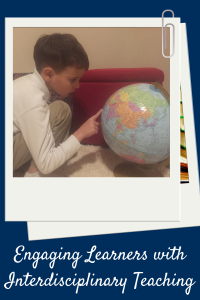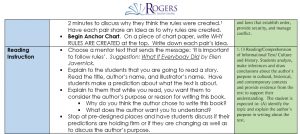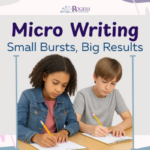 As educators, we are constantly hearing how important it is to make our curriculum relevant to students, and that the students need to have ownership and find value in their learning. It seems to me that the obvious solution is to actively teach more social studies. While social studies is written in every elementary curriculum, many times it is tossed aside for tested subjects, or forgotten when time runs out. However, social studies is naturally interesting to children. A dry, information-heavy text book can easily squash a natural interest, but great in-depth inquiry can excite a student. “It is in social studies that students learn skills ranging from reading a map to framing an argument, and it is also in these classrooms that students learn how to assess the validity of evidence, evaluate conflicting points of view and apply facts to making decisions and articulating compelling arguments” (Calvert Public Schools). These are skills that we often complain are missing from the curriculum and skills that are valuable in the real world. It is crucial that we spend more time focusing on an important part of the curriculum that can provide so much insight and power to our students.
As educators, we are constantly hearing how important it is to make our curriculum relevant to students, and that the students need to have ownership and find value in their learning. It seems to me that the obvious solution is to actively teach more social studies. While social studies is written in every elementary curriculum, many times it is tossed aside for tested subjects, or forgotten when time runs out. However, social studies is naturally interesting to children. A dry, information-heavy text book can easily squash a natural interest, but great in-depth inquiry can excite a student. “It is in social studies that students learn skills ranging from reading a map to framing an argument, and it is also in these classrooms that students learn how to assess the validity of evidence, evaluate conflicting points of view and apply facts to making decisions and articulating compelling arguments” (Calvert Public Schools). These are skills that we often complain are missing from the curriculum and skills that are valuable in the real world. It is crucial that we spend more time focusing on an important part of the curriculum that can provide so much insight and power to our students.
Truthfully, social studies is often cut from elementary schools in order to increase time spent in other subject areas, specifically math and ELA/R. I understand the time crunch. Regardless of how much time you are given as a teacher, it never seems like enough. This is why we must integrate our curriculum. Somewhere along the line, we have created distinct boxes for subjects: you are science, you are history, etc. Knowledge in the real world doesn’t come in nice packages. We have to be able to pull information from many locations and synthesize that information to make sense of new learning, formulate ideas, and think critically. Edutopia (2008) explains that integrating curriculum provides students with a meaningful understanding of complex subjects and how they relate. Not too mention it makes school more interesting and productive for students and teachers!
Upon a request from a school in Texas, I created a unit following the TEKS Resource System Unit 4 for first grade teachers. This unit was to combine Readers’ and Writers’ Workshop with social studies. Using Concept Based Instruction ideas from Erickson, I created essential questions and objectives that would guide this unit. The whole unit is 6 weeks long. Below is a link to day 1.
Rogers Education Consulting Interdisciplinary Unit 4; Day 1
Do you integrate social studies content in Readers’ & Writers’ Workshop? What would you add to the lesson sample?
Works Cited
Erickson, H., & Tomlinson, C. (2007).Concept-based curriculum and instruction for the thinking classroom. Thousand Oaks, Calif.: Corwin Press.
The Reason Why we Must All Learn History and Social Studies. (n.d.). Retrieved February 23, 2015, from http://www.calvertnet.k12.md.us/departments/instruction/socialstudies/documents/thereasonswhy.pdf
Why Should Schools Embrace Integrated Studies?: It Fosters a Way of Learning that Mimics Real Life. (2008). Edutopia.



